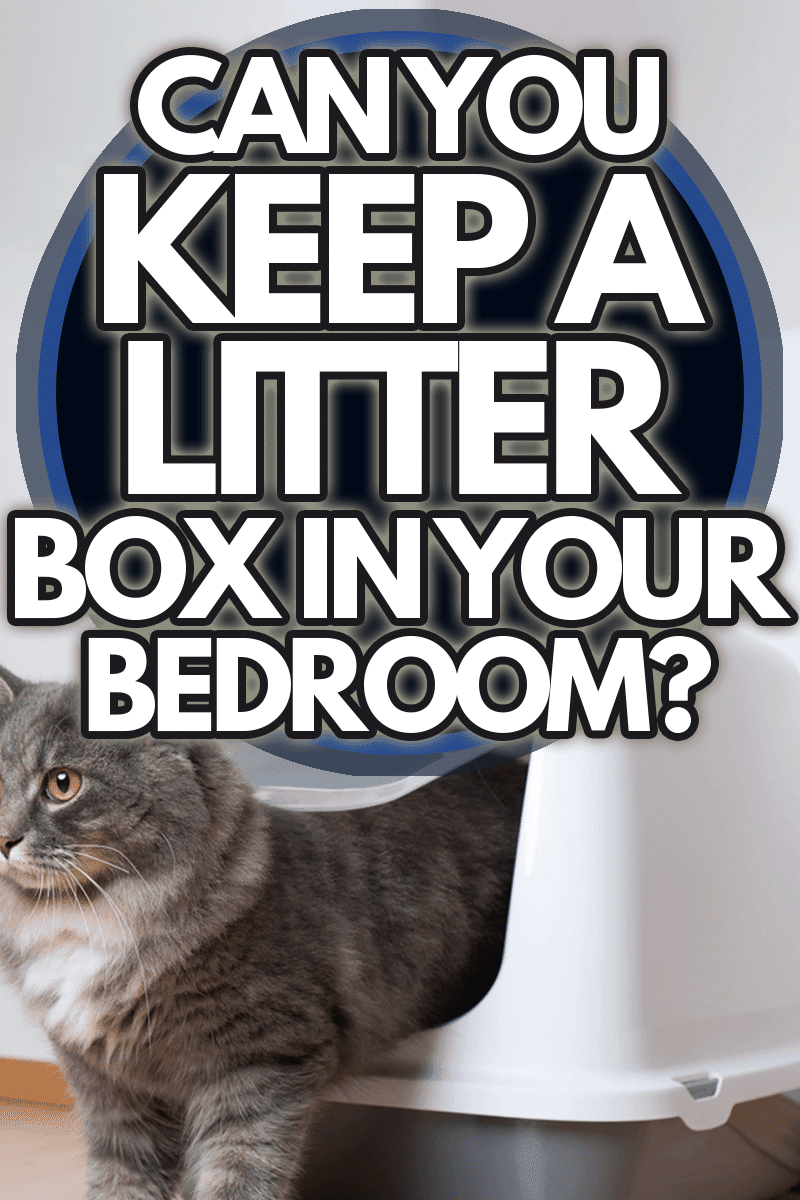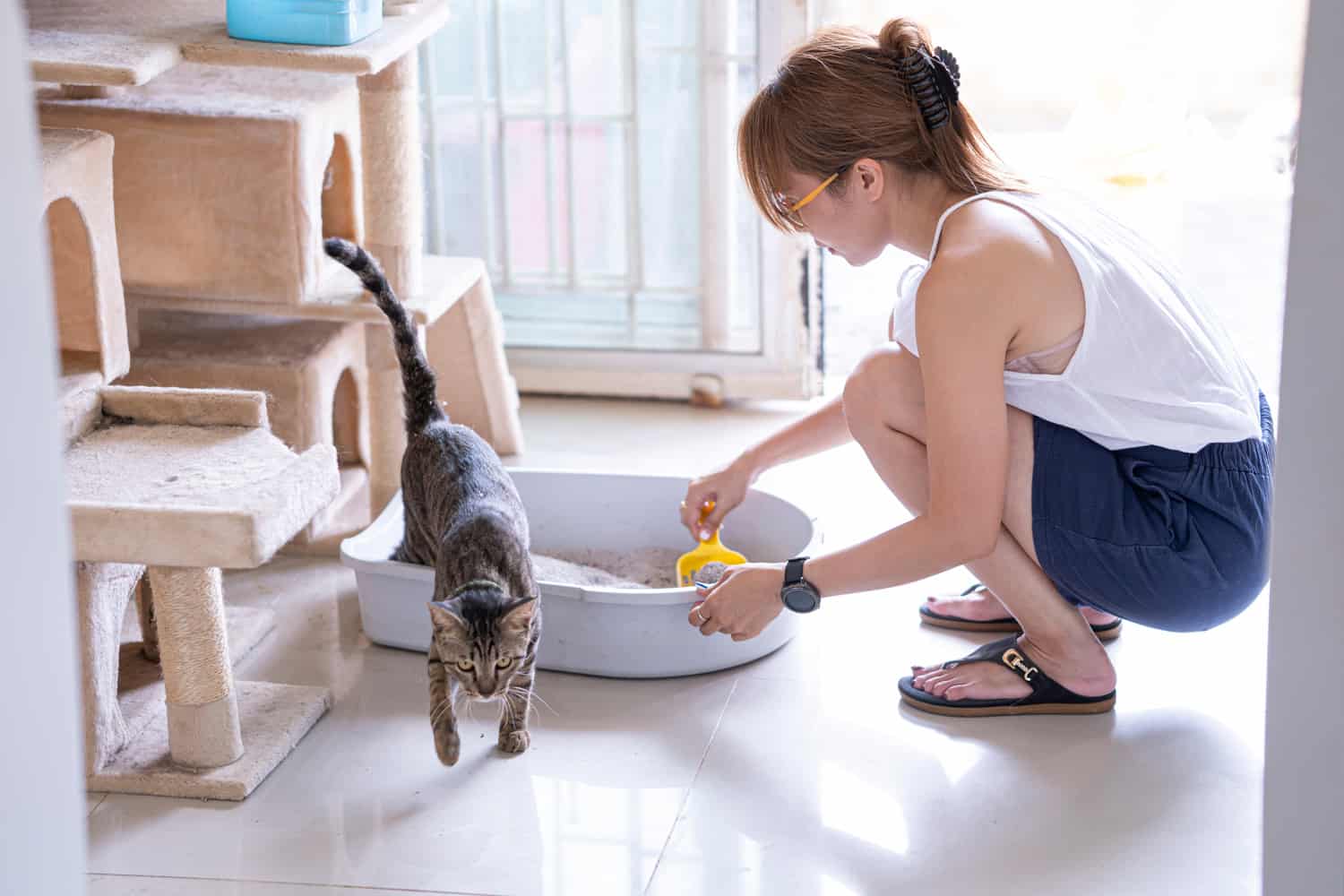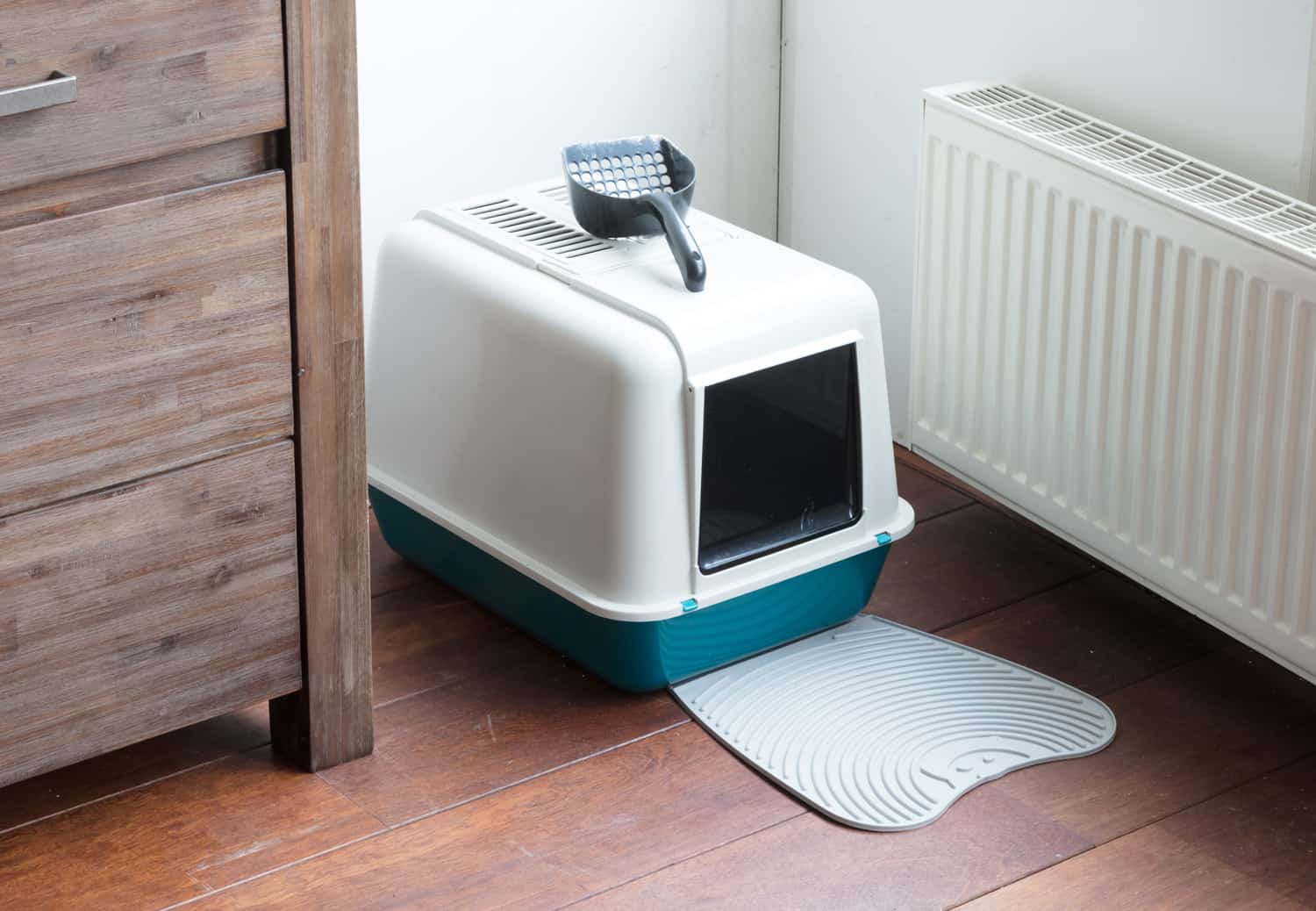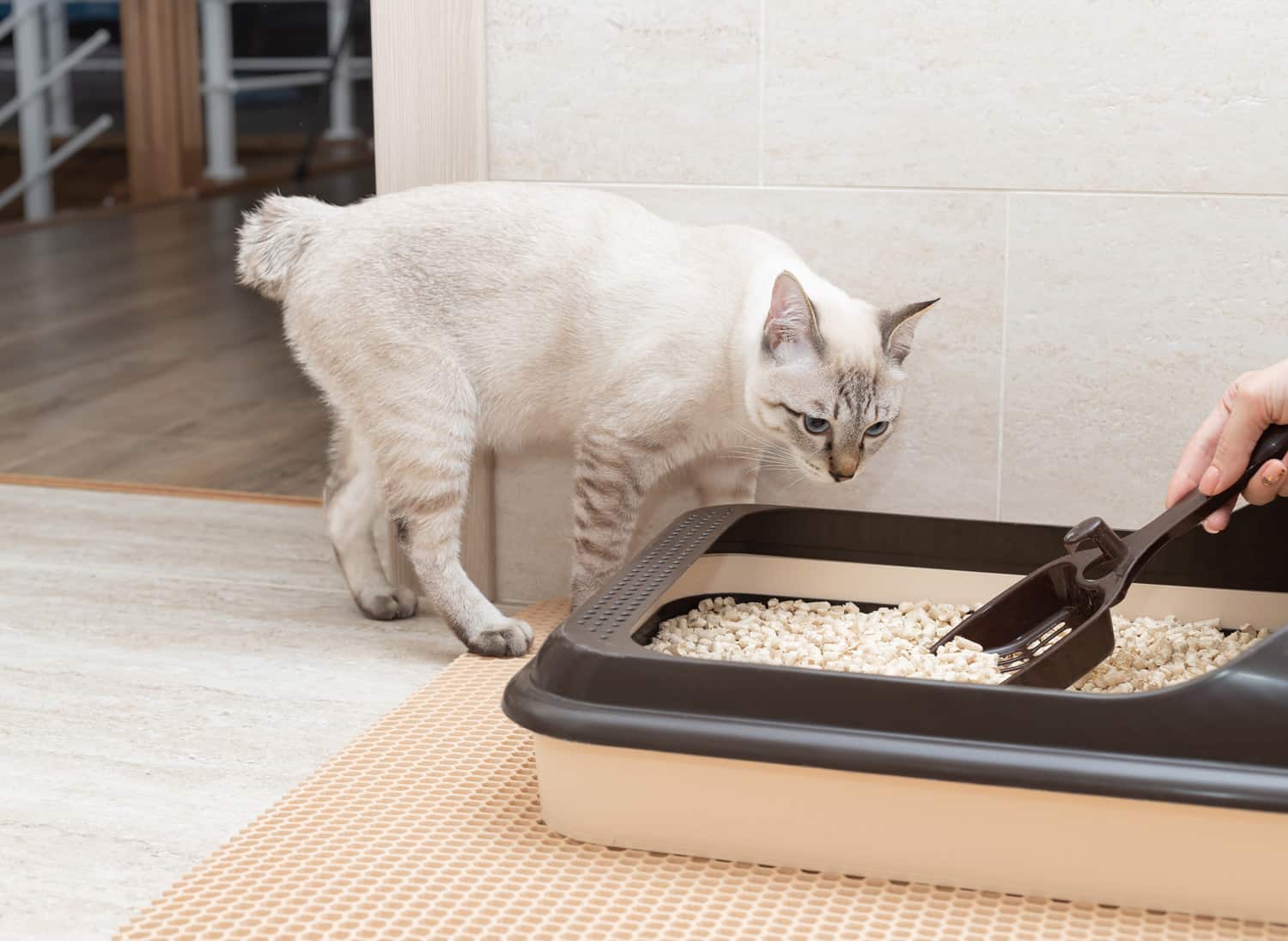Selecting a place for your cat's litter box isn't easy. After all, these litter boxes need to be set up in an area where your cat feels comfortable and safe. It leads many cat owners to wonder whether they can keep a litter box in their bedrooms. We researched this topic and found an answer to satisfy any cat owner's curiosity.
Keeping a litter box in a bedroom is only an appropriate option when the bedroom's extremely large and the litter box is set up far away from your bed. But we'd recommend avoiding this placement whenever possible for these five crucial issues:
- Pungent Odor
- Health Risks for Pregnant Women and Children
- Lack of Privacy
- Ammonia Exposure
- Excessive Noise Level
However, this answer only shines a little light on why this placement isn't a great idea. The following sections will dive deeper into each of these concerns to provide more context. We'll also cover a few other topics to give you a better general understanding of cat litter and litter boxes.

Why Your Bedroom Isn't The Best Place for a Litter Box?

If a pet owner is thinking about placing their cat's litter box in a bedroom, it's best to rethink and find an alternative when possible. So let's take a deeper look at how a bedroom litter box would be a nightmare for owners and their cats:
Pungent Odor
The most obvious issue is a litter box's pungent odor. Nobody wants to smell a dirty, messy litter box in their bedroom, especially when trying to sleep. It'd require the owner to burn many candles or keep an air freshener in their rooms.
Health Risks for Pregnant Women and Children
Healthy adults don't have to worry much about health risks stemming from handling cat litter. But children and pregnant women are much more at risk for potential issues. Toxoplasmosis can make kids extremely sick and runs a high chance of complicated pregnancies.
Toxoplasmosis has even proven to increase the chances of a birth defect or miscarriage. In other words, this infection isn't anything a child or pregnant woman wants to develop. It's also worth mentioning that it spreads by getting into the air when you scoop or change the litter.
Your cat presents another health risk as it can excrete digestive parasites eggs, such as roundworms. These parasites will then move on to infect any nearby human. It's a gross and disgusting thing to think about when considering a litter box in your bedroom.
Thankfully, anyone in good health shouldn't have much difficulty stopping these litter box germs. Washing your hands and changing clothes should do the trick. But these parasites can cause significant issues for pregnant women and people with weak immune systems.
Lack of Privacy
Cats are known to enjoy their privacy when doing their bathroom business. However, it can make them uncomfortable when their owners walk by them during these vulnerable moments. As a result, it's best to ensure they feel comfortable and safe within their litter boxes.
So it doesn't make much sense to place a litter box in a smaller space like a bedroom. It doesn't give them much room to hide or privacy when going to the bathroom. Due to this, any small and closed-off bedroom should represent a last resort litter box placement.
Ammonia Exposure
Ammonia will build up within a cat litter box when it becomes dirty and filled with waste. Therefore, it can end up leading to over-exposure and causing specific symptoms in humans. It's not uncommon to experience nausea and headaches within these circumstances.
Of course, if you keep the litter box clean consistently, this issue becomes non-existent. So if a bedroom or close quarters litter box is necessary, please keep up with the cleaning. A covered litter box would be another way of minimizing this issue.
Covered litter boxes are godsends for preventing litter from flying through the area. These enclosures can limit our exposure to ammonia and diseases caused by cat waste. It's another way of making a bedroom cat litter box less problematic.
Excessive Noise Level
Some cats love scratching their litter boxes as loud as possible. Anyone who's experienced this phenomenon can tell you it's truly annoying. It only gets more problematic when your cat's doing it within a small enclosed bedroom at 2 am.
Where's the Best Place to Keep a Litter Box?

The best place for a litter box placement is away from heavy foot traffic and secluded. In other words, a bathroom or closet could represent excellent options. Many pet owners also find the laundry room ideal for their cat's litter box.
But if you're looking for a more detailed guide for litter box placement, look no further than "Where To Put The Litter Box? A Concise Room-By-Room Guide." It'll walk you through each possible location to ensure you find one perfect for your situation.
Can Cats Find Their Litter Box if You Move It?

What happens if you already have the litter box in your room and want to move it? You don't have to worry too much about your cat finding the new location. Your kitty will use their sense of smell to find wherever you place it.
Even if you've sanitized and cleaned the box, your cat will still detect its previous smell. Your kitty will then follow the odor to this new location and use its litter box. But there is a process owners need to stick by, or your cat will be very stubborn about this change.
After all, cats are known for hating change. So it's best to move the litter box slowly and gradually to ensure they feel more comfortable. If you want to learn more about doing this effectively, check out "Can I Move My Cat's Litter Box?"
Should I Wear a Mask When Cleaning Cat Litter?

If you're worried about the health risks associated with litter boxes, wearing a mask while cleaning them isn't bad. These masks will protect cat owners from inhaling airborne germs and reduce the amount of dust they inhale.
You may also consider wearing goggles to accompany the mask. These goggles will further ensure litter dust isn't an issue when cleaning up cat litter. Many experts recommend both for people undergoing chemotherapy or weakened immune systems.
Do Cats Track Germs From The Litter Box?
Cats are known to be very clean animals. However, there's no way to stop them from tracking gut germs from inside the litter box to other portions of your home. They're likely to catch and drag a few germs each time they use the litter box.
This probability only increases when your cat's re-entering a used litter box. Then, all those disgusting germs will cling to your cat's paw pads and land directly on your floor. Therefore, ensuring the litter box is always as clean as possible becomes essential.
In Closing

Placing a cat litter box in your bedroom isn't a good idea. You're much better off finding a safer alternative away from foot traffic, which offers your cat greater privacy. A bathroom or laundry room might be a worthwhile option.
Don't forget to leave a post and tell us where you placed your cat's litter box in our comment section. Thanks for reading!



